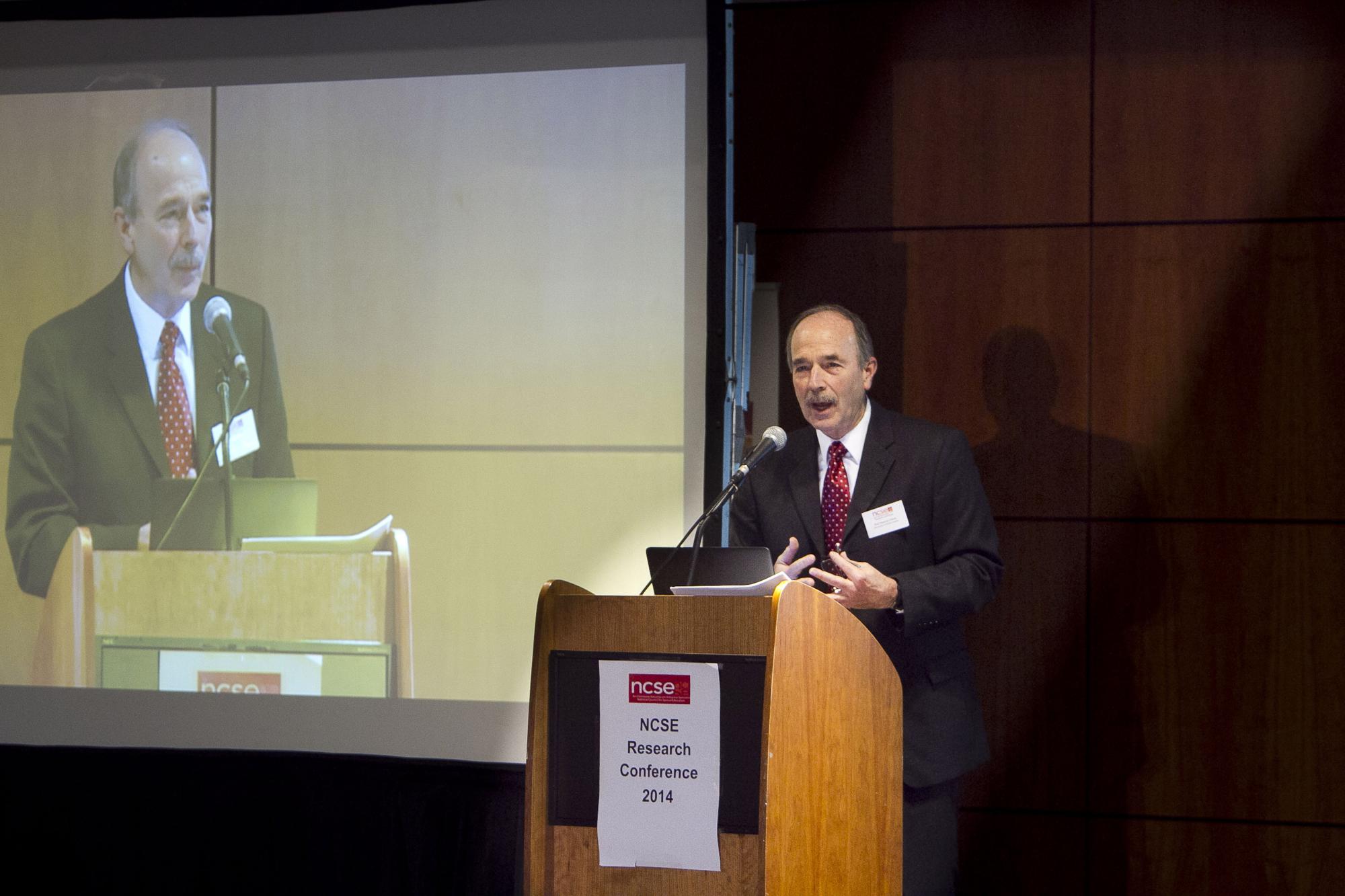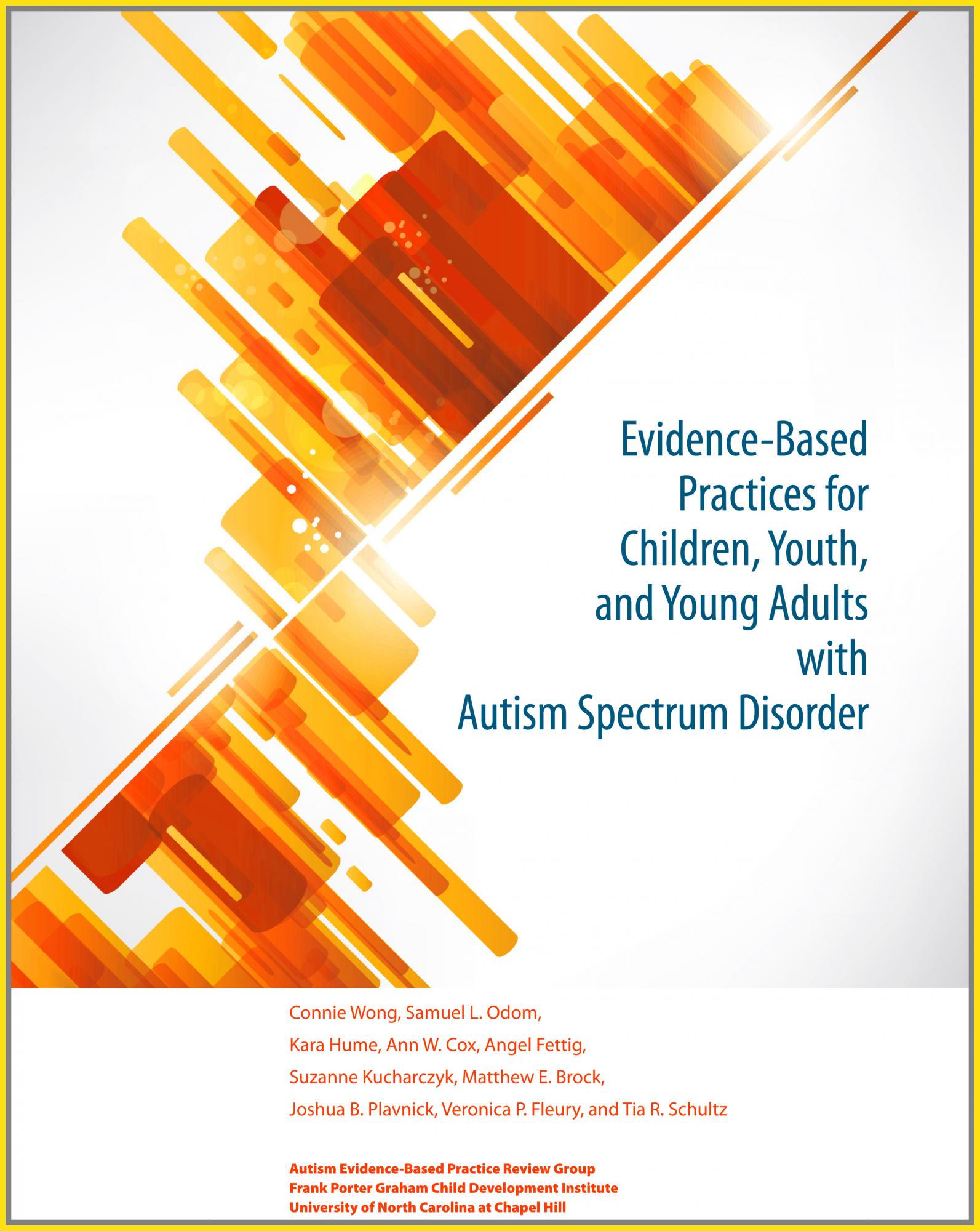FPG Director Odom Warns Against "Snake Oil Salesmen" of Treatments for Autism
 FPG director Samuel L. Odom traveled to Dublin last month to tout the importance of evidence-based programs for children and youth with autism spectrum disorder (ASD) for the annual research conference of Ireland's National Council on Special Education (NCSE).
FPG director Samuel L. Odom traveled to Dublin last month to tout the importance of evidence-based programs for children and youth with autism spectrum disorder (ASD) for the annual research conference of Ireland's National Council on Special Education (NCSE).
Based in part on Odom's work, next year the NCSE will give formal policy advice to Ireland's Minister for Education and Skills on the education of students with ASD. As a result, Odom's special session drew interest from Irish newspapers and radio.
On Newstalk, popular Irish current affairs radio programming, Odom explained some of the challenges facing parents with children with ASD, such as "snake-oil salesmen" who hawk unproven treatments, and he emphasized that evidence-based practices can markedly improve children's lives.
For the Irish Times, Odom's message included a focus on young adults with ASD who have completed their schooling: “In the US, parents of children with autism face a real challenge when they graduate from high school and go into the community. We do know the outcomes for those individuals are often very poor."
In another article for the Times, he termed baseless interventions "the Dark Arts," explaining that "parents want the best for their children and many of these treatments cost lots of money. And to be pulled into a treatment that has very little evidence of efficacy, I think, is a dark thing to do.”
While covering a story of how some students with special needs are blocked from entering schools in Ireland, the Irish Examiner noted Odom's criticism at the conference of "attempts by some groups to endorse alternative approaches which do nothing and can even damage the children involved."
 Earlier this year, the National Professional Development Center on Autism Spectrum Disorders had released its much-anticipated update on evidence-based practices for children and youth with autism. FPG scientists spearheaded the project, screening 29,000 articles about autism spectrum disorder to locate the soundest research on interventions for children from birth to age 22.
Earlier this year, the National Professional Development Center on Autism Spectrum Disorders had released its much-anticipated update on evidence-based practices for children and youth with autism. FPG scientists spearheaded the project, screening 29,000 articles about autism spectrum disorder to locate the soundest research on interventions for children from birth to age 22.
“More children than ever are being diagnosed with autism,” said Odom when the report was published. “We’re catching them earlier, with better tools, and these children need the right services.”
Applying more stringent criteria, the NPDC’s updated report drops one evidence-based practice from the 24 identified in its 2008 review. After considering more studies this time, scientists also renamed and broadened one category, “technology-aided instruction,” and added 5 more, including “exercise” and “structured play groups.”
In a press release for the NCSE's conference, Odom explained that the challenge now is to implement evidence-based practices widely. "In the absence of implementation, even the most effective intervention will not yield better outcomes."
Read the updated report on evidence-based practices for children and youth with ASD
DS